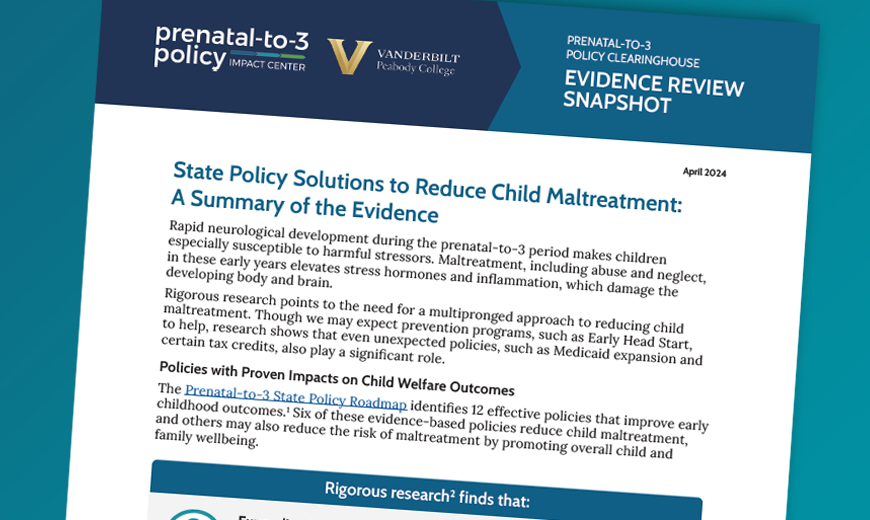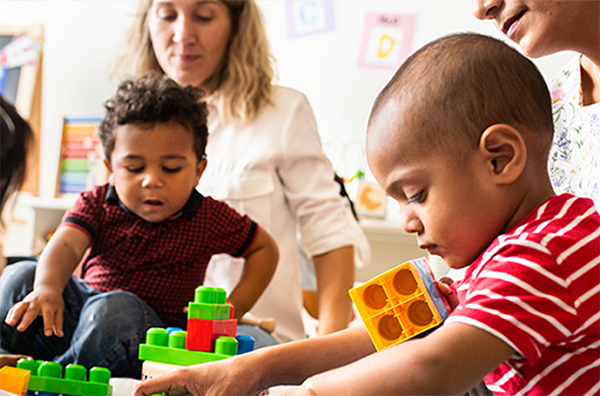- Home
- /
- Research Topics
- /
- Early Head Start
Early Head Start
Early Head Start (EHS) is a federal program serving low-income pregnant women, infants, toddlers, and their families by providing child development and family support services in home-based, center-based, and family child care settings. EHS provides children with individualized services and high-quality early care and learning environments, as well as helps build parents’ skills and community connections.
Featured Resource
Early Head Start (EHS) improves aspects of parents’ ability to work, parental health and emotional wellbeing, nurturing child-parent relationships, and optimal child health and development, although evidence within these goals is somewhat mixed. EHS also supports participation in high-quality early care and education.
Related Resources
Early educators remain among the most underpaid workers in the nation despite playing a critical role in child development and enabling workforce participation for parents. Across the country, the median wage for early educators is
Did you know state policies play an important role in reducing child maltreatment? Rapid neurological development makes children especially susceptible to harmful stressors, such as maltreatment, during the prenatal-to-3 period. Though we may expect prevention
- Blog
- |
State lawmakers face difficult choices about how to use scarce public resources. To ensure that investments have a big impact on young children, lawmakers often want to know—which policies actually work? The Prenatal-to-3 Policy Impact
- News
- |
Meadow Lakes Head Start, a preschool in Wasilla that has 45 students, will close down at the end of the year. Half of the students will move on to kindergarten and the rest will have
- News
- |
Maine ranked 18 out of 50 states and D.C. in amount of resources a working parent has available to support their family. Consider this scenario: a single parent with an infant and a toddler who works
- Report
- |
Significant returns to families and the state







